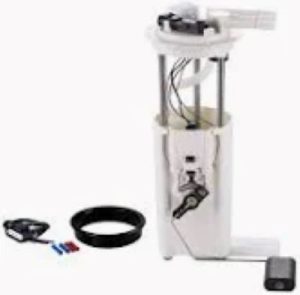One of the most serious consequences of a failing fuel pump is it prevents an engine from starting, since the pump delivers fuel from the tank to the engine at just the right pressure. When the pump quits functioning or begins to fail, it can absolutely starve the engine for fuel when cranking; thus resulting in a no-start condition. This is symptom of a fuel pump on its way out and with vehicels that have over 100,000 miles -- or more likely to impact the performance of the pump due to wear and tear.
A Longer Crank Time One of the biggest warning signs that your fuel pump may be failing is a longer engine turn over when you attempt to start your vehicle. Just after inserting the key into the ignition, the fuel pump would kick on and pressurize the fuel system right away. When the pump fails, it is no longer able to build up enough pressure that the engine needs for starting and you get a vehicle which cranks for a few seconds before it starts or which never starts. In the worst case, the pump goes out altogether and no matter how long the engine cranks, it will never start.
In reality, the fuel pressure here is tractable. A regular fuel pump will deliver fuel at rate of pressure ranging between 30 psi (pounds per square inch) to 80 psi corresponding to the vehicle you own. This pressure is what the pump must keep up with, if it does not do so, there will be no fuel to burn inside the engine. Although we might not perceive a 5psi as dangerous, an apparent drop of only 10 psi and more often than not, even less are inadequate for starting the compressor.

A bad fuel pump can cause intermittent starting problems. For example, the engine may sometimes start normally and be more difficult to start up later — especially when it's hot because heat is a common cause of fuel pump overheating. Around 5% of fuel pump problems reported to the American Automobile Association (AAA) resulted in vehicles experiencing sporadic starting behavior, a level of frustration for drivers.
When major automotive recalls like the ones in the fuel pump industry happen, people are reminded of how critical reliable fuel delivery systems are. For example, last year Toyota recalled 1.5 million cars for defective fuel pumps that caused engines to stall and not start. It shows just how far-reaching one broken fuel pump can have.
The proper operation of the Fuel Pump is essential to ensure that gasoline is pumped precisely into your car's combustion system, as a flawed pump won't propel the fuel from your vehicle's tank to its engine. Routine maintenance such as making sure the fuel filter is clean and providing it with good quality of fuel can help prolong a pump’s life, lessening the chance of having starting problems.
